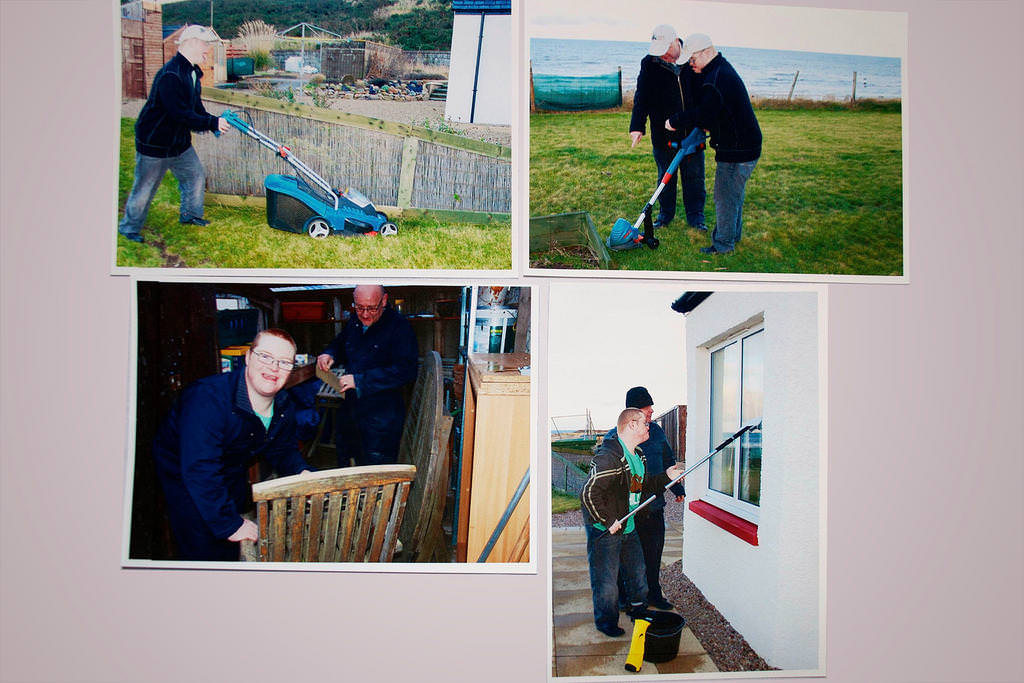
In our third Pilotlight pathway we are working with a co-design team of people who deliver and access support in Moray to look at how self-directed support can be used for small business development.
Right from the start, co-design team members have been eager to hear real stories from people who have pioneered using self-directed support in this way. At our second workshop Alex, Barbara and Paul Zealand came to talk to us and to answer questions about how they had used self-directed support to set up and run Alex’s handyman business.
Alex has a handyman/odd jobs business. He provides a range of services to older and disabled people in Buckie, including lawn mowing, window cleaning, patio cleaning, fence painting and garden furniture sanding and treatment. Alex loves what he does, especially the lawn mowing. He is very popular with his clients, many of whom look forward to his visits and to having a cup of tea and a chat with him.
Alex’s mother Barbara explained that Alex had been due to leave school last summer and start college. A couple of months before he was due to start, Alex told her he did not want to go to college. So they had to act both creatively and quickly because they did not want Alex to go to the day centre full time (he goes one day a week in order to keep up with his network of friends from school).
They applied for a direct payment (one of the self-directed support options). In this option the Council pays you an amount of money (based on an assessment of your needs) and you (or someone acting on your behalf) choose and arrange your support services. Barbara and Alex decided to spend Alex’s direct payment on employing three support workers (also known as personal assistants) to support him to run a handyman business. They could also have applied for a grant to purchase the specialist equipment Alex uses in his business (rechargeable strimmer and lawnmower) but due to the short time they had to set up, they went ahead and bought this themselves.
Barbara and Alex recruited his support team with help from the Direct Payments worker at Moray Council, who put their advert into the Job Centre. They recruited Paul, Willie and Tracy. They were not necessarily looking for people with experience of care work, but for people with the right attitudes who Alex liked and got on well with. Recruiting their own staff gave them control. One of the staff they recruited is a joiner and is passing on some skills to Alex.
Barbara told us that the SDS assessment process was very easy. They have a payroll company who works out all the tax and national insurance, but they pay the staff themselves.
At the moment Alex is on Employment Support Allowance. This means he can earn up to £20 per week after all his business expenses have been paid before he loses any benefit. Alex’s charges for his services are lower than other businesses to keep his earnings below this amount. The long term goal is for him to come off Employment Support Allowance.
From starting with three clients through his church network, Alex now has 15 clients and a waiting list. Alex has friends who are currently at the day centre who would like the opportunity of having or being part of a small business. Barbara has approached the day centre to offer them the opportunity for someone to come and work with Alex but so far they have not taken this up. As Barbara explained, this is not an easy option, being an employer can seem very scary and she cannot make it happen for everyone, but it is has been the right thing for Alex.
Barbara left us with three very inspiring messages:
- Try It!
- Don’t be afraid of failing
- You can change it as you go along
